This film is currently available as an Arrow Video 4K Ultra HD, or an “Arrow Exclusive” 4K Ultra HD, or a “Limited Edition” Blu-ray.
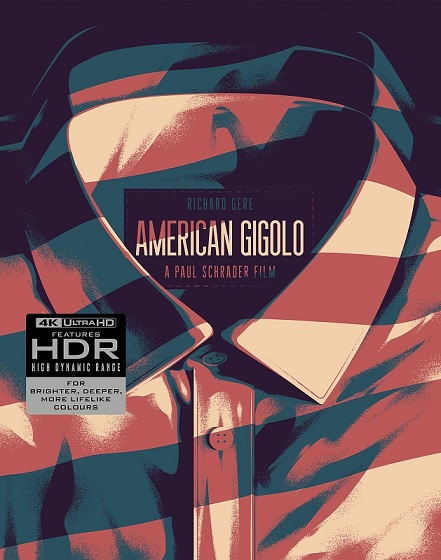
It may have been because I was much too young to see it during its original run or release on VHS, but American Gigolo is one of those titles that has slipped by me over the years. Of course, another more recent problem is that it has been out-of-print for some time. Its last release was about a decade ago, which is a little strange given that the film was a box office success when it came out and was released by Paramount Pictures. Thankfully, Arrow Video is now correcting the problem. They have exclusively remastered the picture in 4K using the original 35mm camera negative and are making it available on either 4K Ultra HD or Blu-ray.
For those who might not have seen the picture, the story follows LA-based male prostitute Julian Kay (Richard Gere). This is a man who enjoys the finer things in life and is very conscious of clothing, appearance and materialism in general. He prefers the company of older women and seems very happy to please them, allowing him to earn a sizable income without having to invest in deep or meaningful relationships. Things become a little more complicated after he crosses paths with Michelle (Lauren Hutton), a woman unhappily married to a local politician. Despite his protests, she becomes interested in him as more than a lover.
As their relationship develops into something that makes Julian uncomfortable, he learns that one of his clients has been brutally murdered. Detective Sunday (Hector Elizondo) quickly appears and begins grilling him as the prime suspect in the crime. When Julian asks for help from associates and handlers like Leon (Bill Duke), he is refused help. And, of course, most of his married clients deny ever having relations with the figure, leaving him on the hook for the slaying.
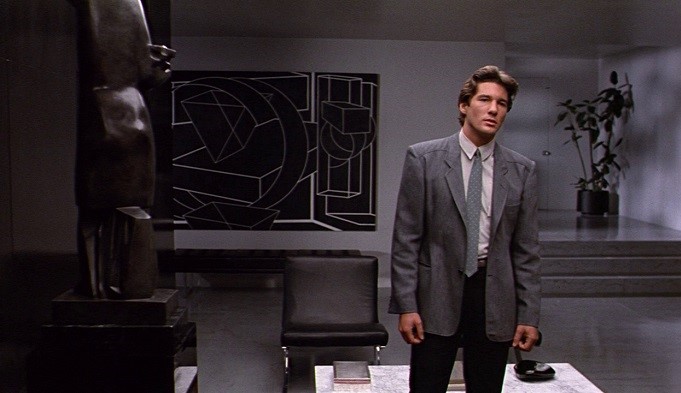
The film is considered as a zeitgeist of sorts during its release. While it was shot in 1979, the story fully embraces the mentality of the 1980s, all as the decade was just beginning. It involves a character desiring a lavish but shallow existence and the story focuses on fashion and music trends of the era. The memorable score by Giorgio Moroder has a “New Wave” feel and includes the hit Blondie song “Call Me” as its central theme. Everything about the film, from the clothing and sounds to the bright colors, is ahead of its time. It may be serving as a warning of where these kinds of selfish attitudes might lead, but many audiences embraced this movie’s extravagances.
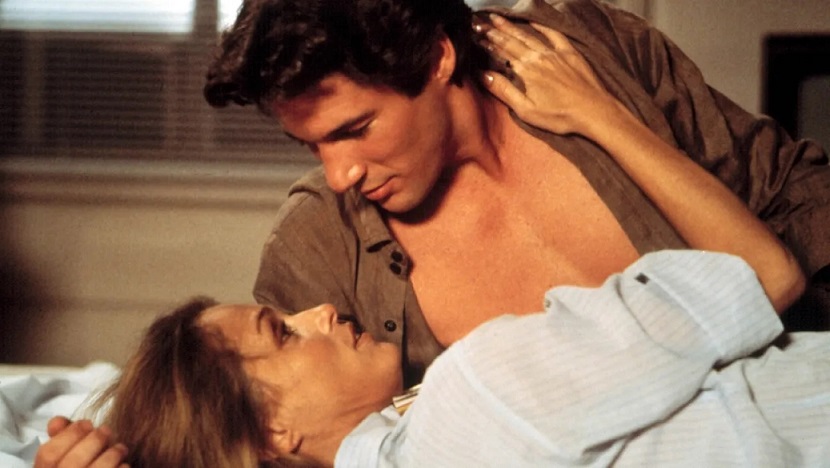
This isn’t a graphic picture, but it is an interesting one as it details the peculiarities of its lead character and lets viewers into his unique world. There is a comment or two that wouldn’t be included were the film made today, but it doesn’t go out of its way to bluntly judge the lead’s behavior. We simply witness the ground rules he sets for himself, his personal philosophy and how he goes about his unusual line of work. When the murder occurs, the film becomes quite suspenseful as Julian tries to get help and is immediately shot down by almost everyone, yet must somehow still find out who is responsible before he ends up incarcerated. Things don’t go according to plan either, adding a twist or two and some tension as to whether or not the lead will escape what appears to be his fate.
It’s a very strong movie with excellent performances. Gere is interesting as the main character, who is icy but still manages to keep viewers invested in his story. He and Hutton share plenty of onscreen chemistry that keeps their relationship believable and Elizondo makes for an entertaining foil as the gruff and fashion-backwards detective hunting down the lead.
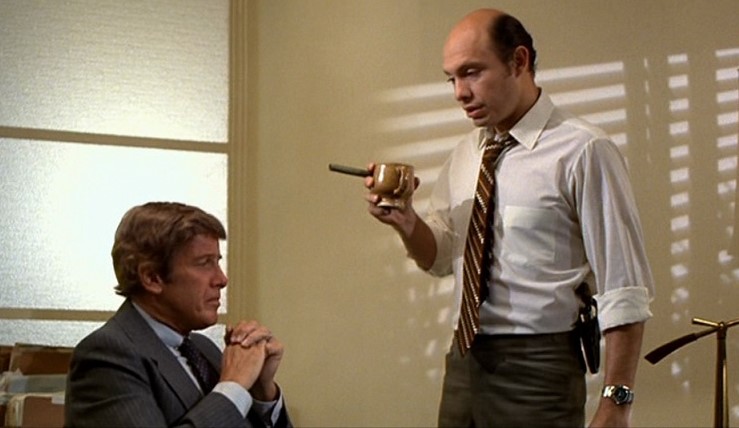
The 4K Ultra HD disc and Blu-ray offer an improved viewing experience. There is some grain here and there (particularly during some nighttime sequences) and, like other pictures, the opening titles aren’t as sharp as the rest of the movie, but the clarity during a few daytime scenes is truly striking. When Julian visits a California coastal home and talks with a character inside the house and later below on the beach, the resolution and scenery is incredible to behold. The movie looks as good as it possibly can. Overall, the 4K Ultra HD version boasts a bit of extra sharpness and is the superior version.
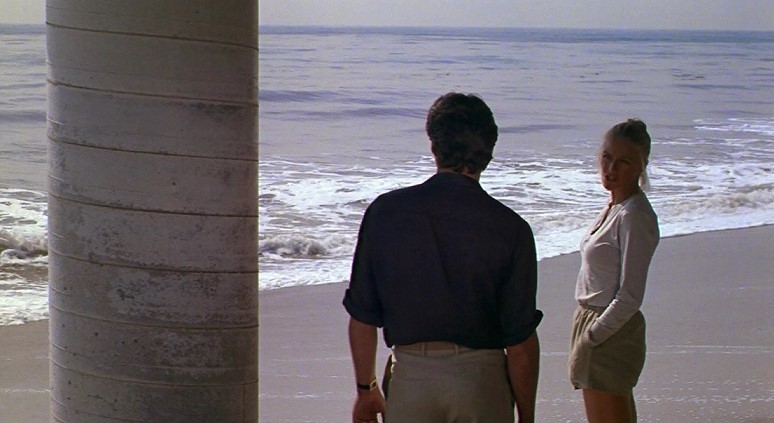
This is a release from Arrow Video, which also means that it comes with plenty of great bonuses. The first is a film critic commentary track. The speaker is interesting in that he admits that back in the day he wasn’t as taken with the picture as he should have been. He admits that the film’s mix of arthouse and more commercial aspects initially confused him, but that it holds up better than a lot of titles of the era. He goes into the production and the story’s emphasis on a material lifestyle, as well as the ultimate meaning of the film and the types of European movies that influenced this tale. There’s plenty of interesting information being relayed.
A big plus is the interview with writer/director Paul Schrader. He describes how he came up with the concept and admits that he was very concerned at the time and considered this project as his last shot in the industry, as the first two pictures (Blue Collar and Hardcore) had been critically well received but were box office flops. The director also relays how the picture almost fell apart when original lead John Travolta became wary of the role and backed out at the last minute. Schrader got word this was going to occur days before it happened and managed to convince Gere to step in. Had he not known in advance or gotten in contact with the eventual star, the film would have been canceled on the spot. The filmmaker is full of incredible stories about the project and is fascinating to listen to.
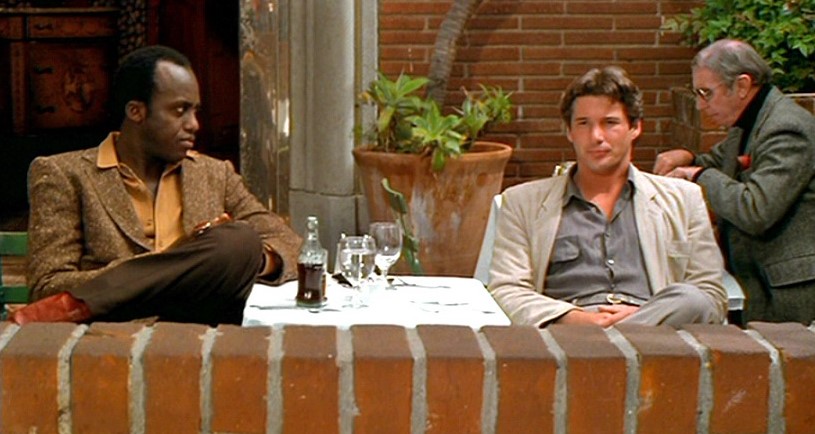
Interviews include a fun discussion with Hector Elizondo about his part and how he approached the role. The same goes for co-star Bill Duke, who recalls a figure from his childhood neighborhood who served partly as inspiration for his take on the character. There is also a discussion with the editor. He recalls running into Hutton sometime later and her telling him how much she loved the movie. The camera operator on the feature talks about his experiences as a very young crew member, remembering how proud he was that a shot he got questioned about ended up being used in the final film.
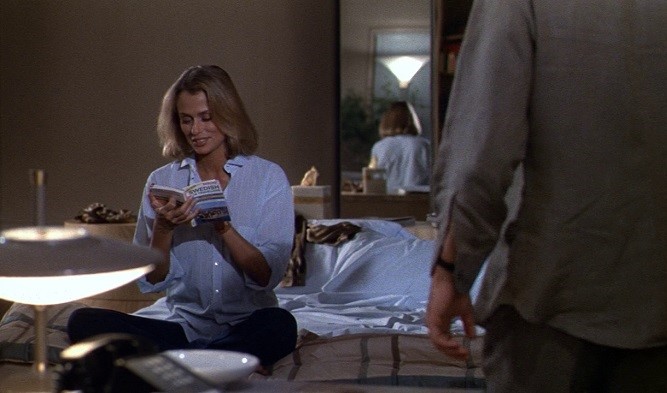
There is also a fun interview with a music authority about Giorgio Moroder’s score and his work on the soundtrack. One entertaining revelation is that while Moroder believed he had written the perfect hit song for the film, Blondie’s Debbie Harry wasn’t as impressed and asked to completely rewrite the lyrics. He ultimately agreed and the final song, whose title and content ultimately morphed into “Call Me” eventually became a smash.
Additionally, you’ll hear a professor discuss the use of fashion in the movie and how unique it was for a film of the era to have characters spend so much time dressing and being concerned about their appearance. As if that wasn’t enough, a trailer is also included, as well as stills, poster and press materials, and lobby cards. The booklet also contains essays on the movie.
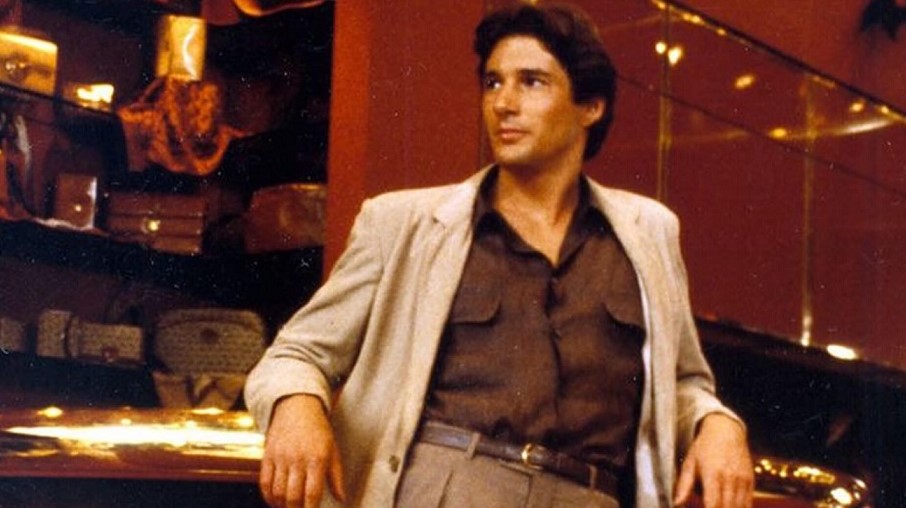
American Gigolo is a very pleasant surprise. It stands as an engaging and effective drama/thriller that doesn’t follow most Hollywood conventions and serves as an accurate representation of its era. The film offers great performances and plenty of twists and turns that keep the viewer guessing right until the end. What isn’t a surprise is that Arrow Video has put together excellent packages for the film, with improved picture quality and plenty of great extra features. Anyone who admires the work of Schrader, Gere, Hutton, Elizondo, Duke or wants an interesting take of a once taboo subject should definitely pick the title up!


